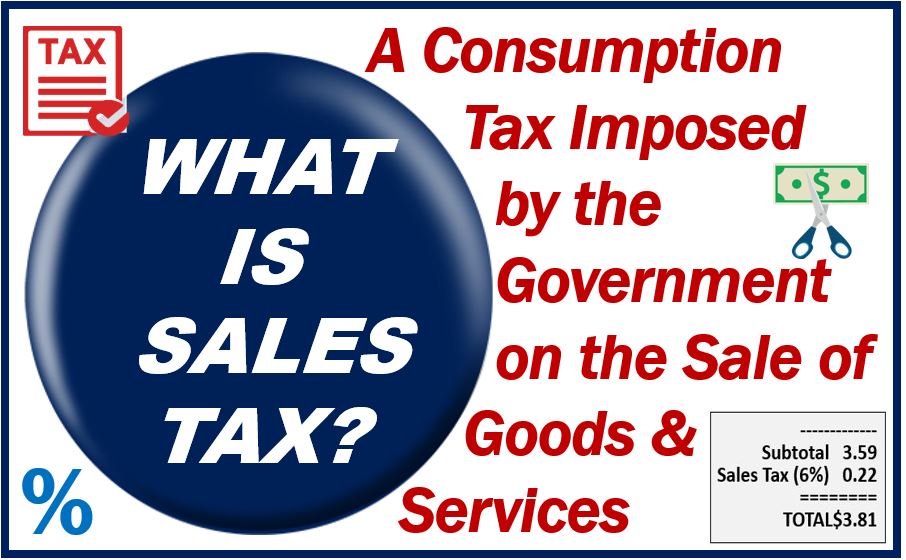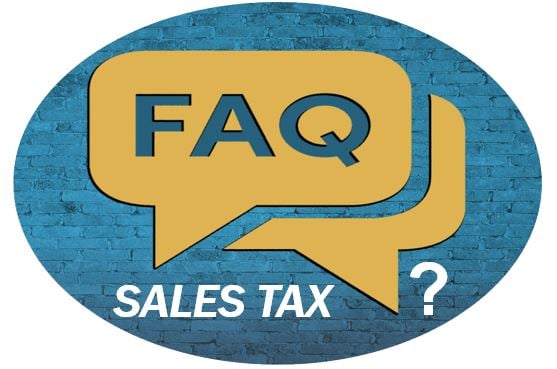Sales taxes are part of the many taxes that business owners need to pay. Almost all states in the United States require entrepreneurs to pay this tax, which states use to pay for their budget expenses, including roads, schools, and public safety. All businesses selling any taxable product are supposed to collect this tax from client sales, do sales tax filing, and make payments to the State Tax Department.

The process of calculating, collecting, filing returns, and paying tax can be overwhelming, especially for new entrepreneurs, those having multiple businesses in different states, and those dealing with several taxable products.
How to Collect, Report, and Pay Sales Tax
Below is a simple guide on how small business owners can collect, report, and pay their sales tax. It will help you be confident and experienced in reporting and paying your sales tax. But first, you need to understand if the products you are selling get subjected to sales tax.
Step 1: How to Know if Your Products/Services Fall Under Sales Tax
Not all products get charged sales tax. Different state laws dictate which products or services get subjected to this tax. States like Delaware, New Hampshire, Montana, Oregon, and Alaska require no statewide taxes. Few of these states, including Montana and Alaska, allow locals to charge sales taxes.
Some products get entirely subjected to sales tax, including clothes, handbags, and those which don’t fall under necessities. Others like food items, Prescription drugs, and essential commodities get exempted from tax. However, you need to consult from your state since these laws vary from one state to another and maybe complicated if you sell your products online. Selling any taxable product or service requires you to pay a sales tax.
Step 2: Register to Get a Tax Permit
After starting your business, you need to register for a tax permit to collect taxes. Your business needs to have a tax nexus – a connection between the business and a taxing company. If you have branches in different states, you need to register them for taxes individually in their states. Registration is free and can get done online at the taxing company’s website.
The requirements include your business details, including Employer Identification Number (EIN) and your location. After registering, you get issued a sales tax ID, which you will be using when filing.
Step 3: Calculate Sales Tax
In most cases, the sales tax rate depends on the state you are conducting your business. If you have business ventures in different states, you need to calculate sales tax individually in each state. Most sales taxes gets computed as destination-based sales tax, which means the items tax is charged according to its area of use, and not where it got sold.
Other states carry out the origin-based sales tax, which means the product has to be taxed where it got bought, not its final destination.
Step 4: You Should Collect Taxes at the Point of Sale
To have a more straightforward calculation of your taxes, you need to have a point of sale software that lets you collect sales tax at the end of the sale or in the checkout cart if doing an online business. With the advancement of technology, you can find software and apps which help you deduct taxes depending on your location and the type of product you are selling.
Sales tax should be displayed separately from an item’s actual price on the client’s sales receipt. What is shown in the receipt as tax must get paid to the taxing company during the tax period.
Step 5: File Sales Tax Returns and Make Payments to the State
This process is the last step in sales tax filing, whereby business owners are required to file their returns and make payments of the same to the government. If you are using any accounting software, you can customize sales tax payments to get posted on a separate account automatically. The filing of sales taxes depends on the area you are carrying out the business.
Most states require you to file for your return between the 20th and 25th day after the closing period, while others require monthly and quarterly reporting. It would help if you inquired this before making any filing in your state tax departments. Sales tax filing and payments get more regular if you are handling large-volume sales. Most states also accept online filing and submissions of sales taxes.
Do you file if you haven’t made sales? As long as you have a tax permit, you have to file even when you made zero sales. Failing to file for tax returns or keeping to deadlines is a criminal offense that may lead to hefty penalties or your licenses getting revoked.
Frequently Asked Questions

There have been many questions and myths surrounding sales taxes for small businesses such as:
1. Will the IRS audit my accounts if I don’t collect the taxes as required?
The IRS does not deal with sales taxes. Sales tax is governed at the State level and not by the US national government. The IRS will not audit you, but the State Department of Revenue can carry audit if they see your filing inconsistency.
2. Is it true my online business don’t need to pay to sales taxes?
That’s a misconception. As long as you are selling taxable products or services, you are required to collect, file, and pay sales taxes as required by the law. You can check from your states to understand how this goes.
3. Do I only need to collect taxes from buyers in my home state?
Only online sellers require collecting taxes from areas they have a sales tax nexus. Other businesses may need a collection of taxes in other states.
Sales taxes are for reasonable use by the governments. You should not see it as a pain or punishment when calculating, collecting, or filing the same for your small business. You don’t pay these taxes from your pocket, but from the sales, you make from your company. Such taxes enable states to fund essential services such as roads, fire prevention, schools, hospitals, and other essential services. Ensure you do them right, at the right time to avoid penalties.
Interesting related article: “What is a Tax Return?”

